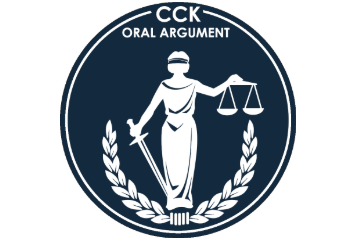CCK Wins Precedential Decision Regarding PTSD and TDIU

CCK Law: Our Vital Role in Veterans Law
Summary of the Case
Mr. Harper served honorably in the United States Navy from September 1970 to July 1972. He initially applied for service-connected compensation for PTSD in August of 2008. In December of that year, the Regional Office granted service connection for that condition with an initial disability rating of 30 percent. In July of 2012, Mr. Harper’s rating was increased to 50 percent, which he then appealed all the way to the Court of Appeals for Veterans Claims (CAVC). In February of 2013, the Court granted a joint motion for partial remand in which the parties agreed that the Board provided inadequate reasons and bases when it denied an increased rating for Mr. Harper’s PTSD. Ultimately, the Regional Office granted a 70 percent disability rating in December of 2015. During this appeals process, Mr. Harper also applied for TDIU, which was awarded in May of 2016 and assigned a February 2016 effective date. He continued to appeal for a disability rating in excess of 50 percent before December 2015 for his service-connected PTSD and entitlement to TDIU prior to February 2016, but was denied by the Board.
Board denies Veteran’s claims regarding PTSD and TDIU
In July of 2016, the Board issued a decision denying Mr. Harper a disability rating in excess of 50 percent prior to December 2015 for his PTSD. The Board decision also determined that the issue of entitlement to TDIU was not part of the underlying appeal for a higher initial disability rating for PTSD because Mr. Harper did not appeal the Regional Office’s decision that granted TDIU. Overall, the Board found that it lacked jurisdiction over TDIU prior to February of 2016.
CCK presents oral argument at Court
CCK successfully appealed to the CAVC the Board decision that denied Mr. Harper a disability rating in excess of 50 percent prior to December 2015 for his PTSD and determined that it did not have jurisdiction over TDIU prior to February 2016. In May of 2018, CCK delivered an oral argument before the Court in Washington, D.C. In regards to Mr. Harper’s increased rating claim for PTSD, CCK argued that the Board failed to rectify the reasons-or-bases errors identified in the February 2013 JMPR granted by the Court. Specifically, the Board failed to discuss evidence of psychosis, including hallucinations, and provide more than a minimal discussion of the occupational impairment he experienced because of his PTSD.
In response to the Board’s finding that it lacked jurisdiction over TDIU prior to February of 2016, CCK asserted that the Board erred in concluding that this issue was not on appeal. CCK argued that the issue of entitlement became part and parcel of Mr. Harper’s appeal for a higher initial disability rating for PTSD in February 2014 when he explicitly raised the issue while his appeal was pending. Although entitlement to TDIU after the period of February 2016 became moot as a result of the Regional Office’s decision, the issue of entitlement to TDIU prior to that date remained on appeal.
Court agrees with CCK’s arguments
CCK argued, and the Court agreed, that although the Board acknowledged that Mr. Harper experienced hallucinations, it failed to address this evidence in its analysis. The Board also failed to adequately address the Veteran’s level of occupational impairment associated with his PTSD. Additionally, the Court agreed that the Board erred in determining that it did not have jurisdiction over the issue of entitlement to TDIU before February of 2016. The Court held that Mr. Harper did not need to appeal the May 2016 Regional Office decision because the issue of entitlement to TDIU became part and parcel of the underlying PTSD claim and the Regional Office’s grant of TDIU served only as a partial grant of his request for TDIU. Therefore, because TDIU was part and parcel of Mr. Harper’s underlying PTSD claim, the Board had jurisdiction to that issue. The Court ruled that the issue of TDIU was not bifurcated from his PTSD claim.
Accordingly, the Court reversed the portion of the Board’s decision that found that it lacked jurisdiction over the issue of entitlement to TDIU. Additionally, the Court remanded the portion of the Board’s decision that denied an initial disability rating in excess of 50 percent for PTSD prior to December 2015.
About the Author
Share this Post
